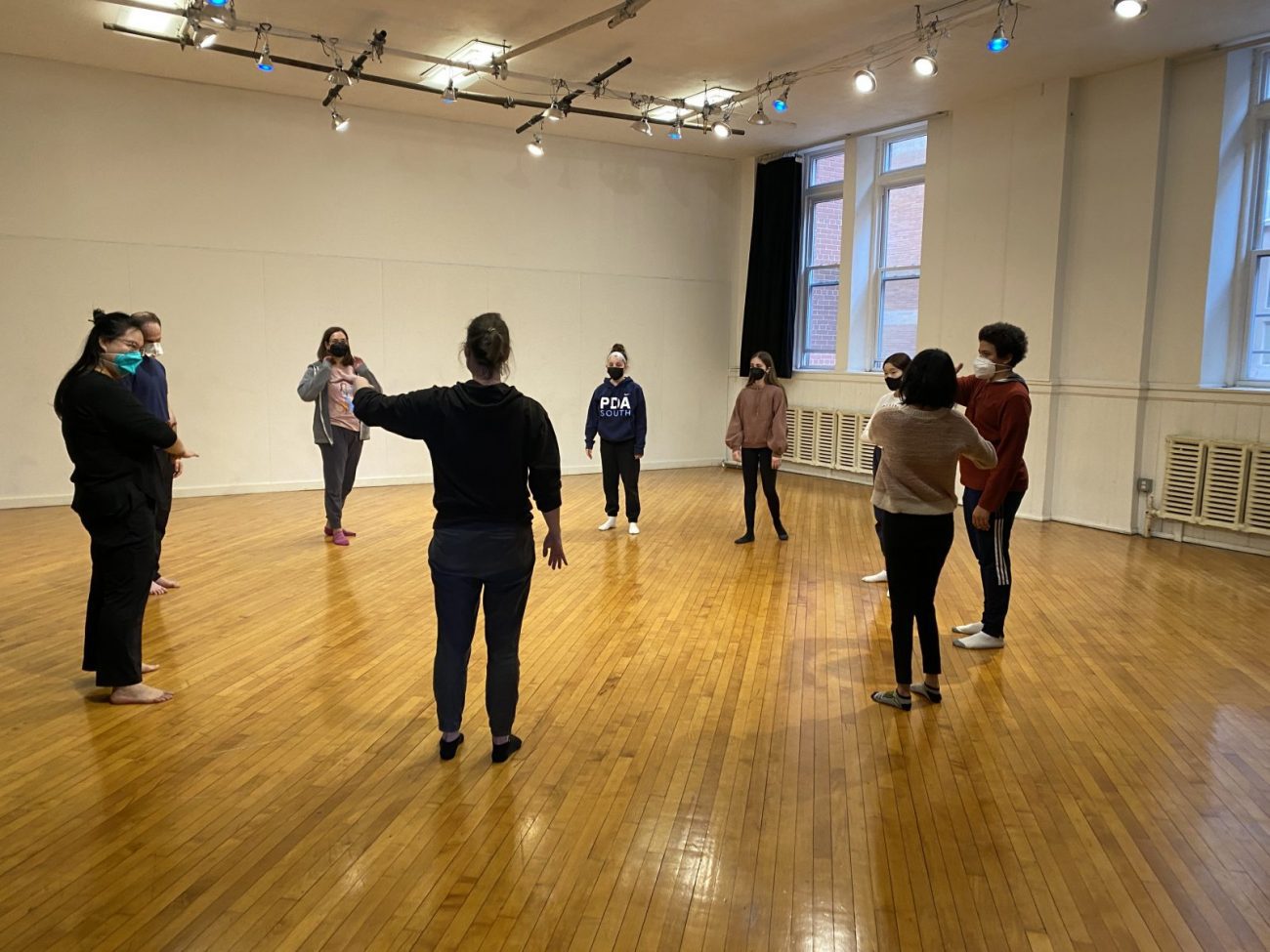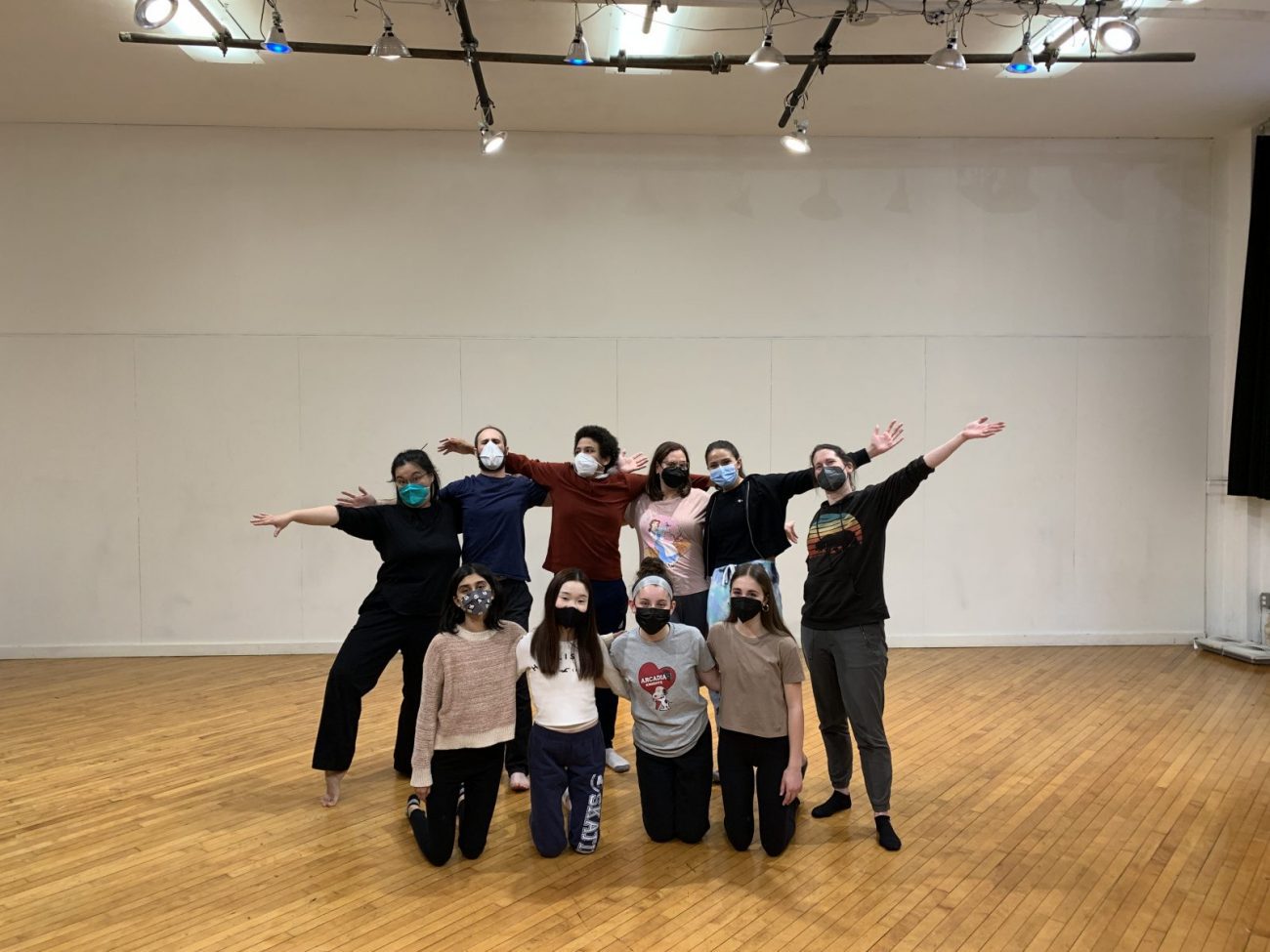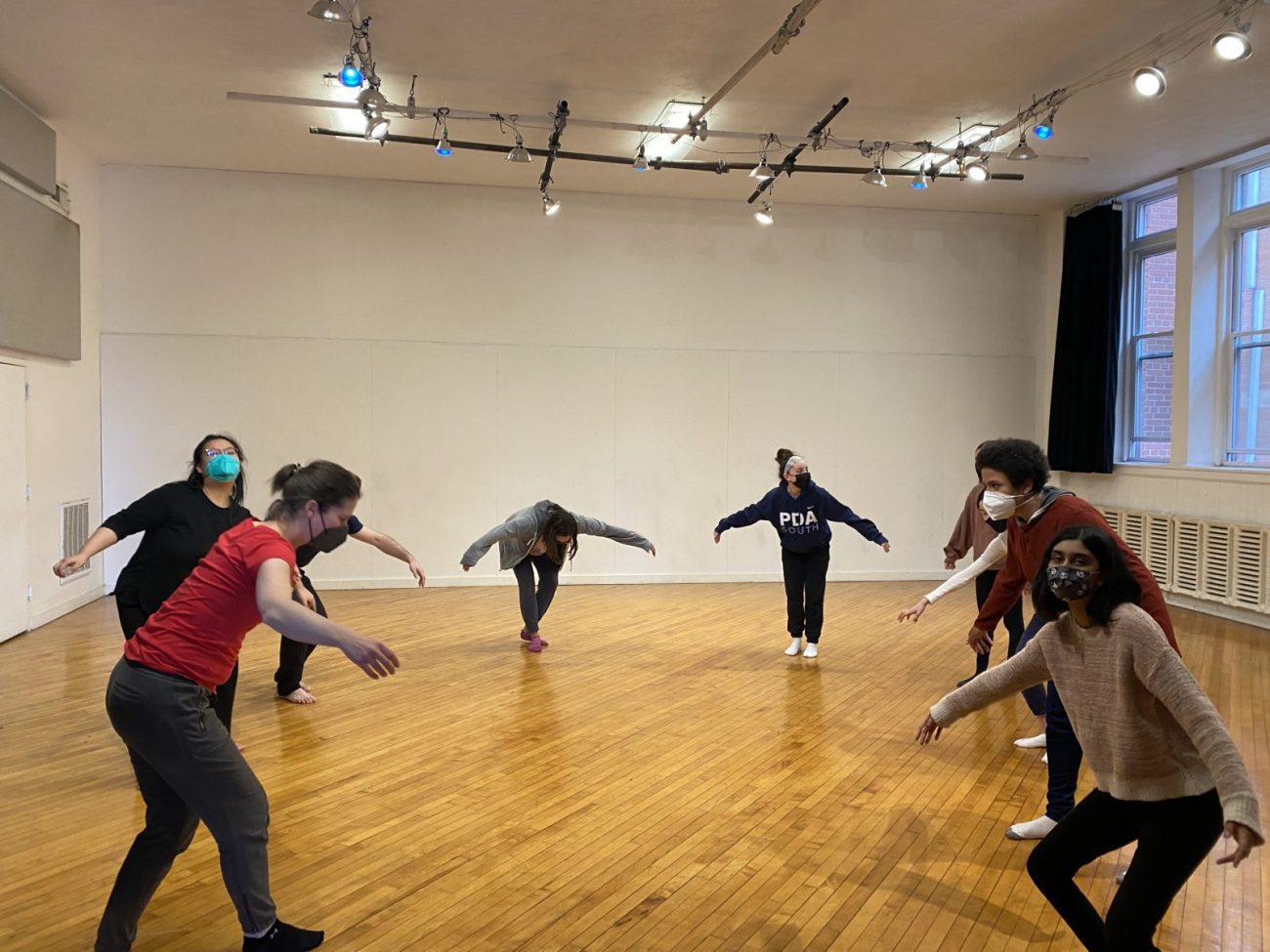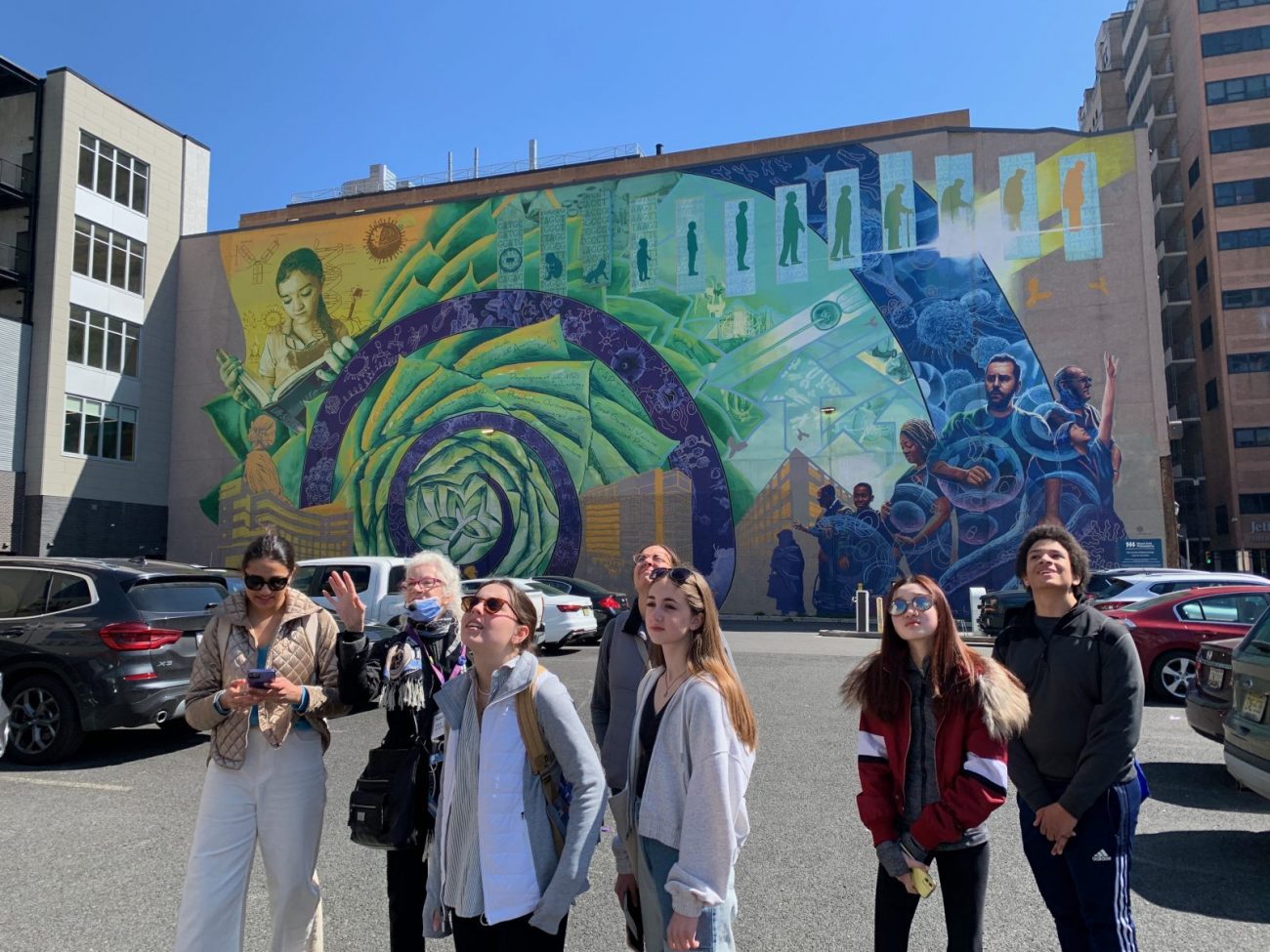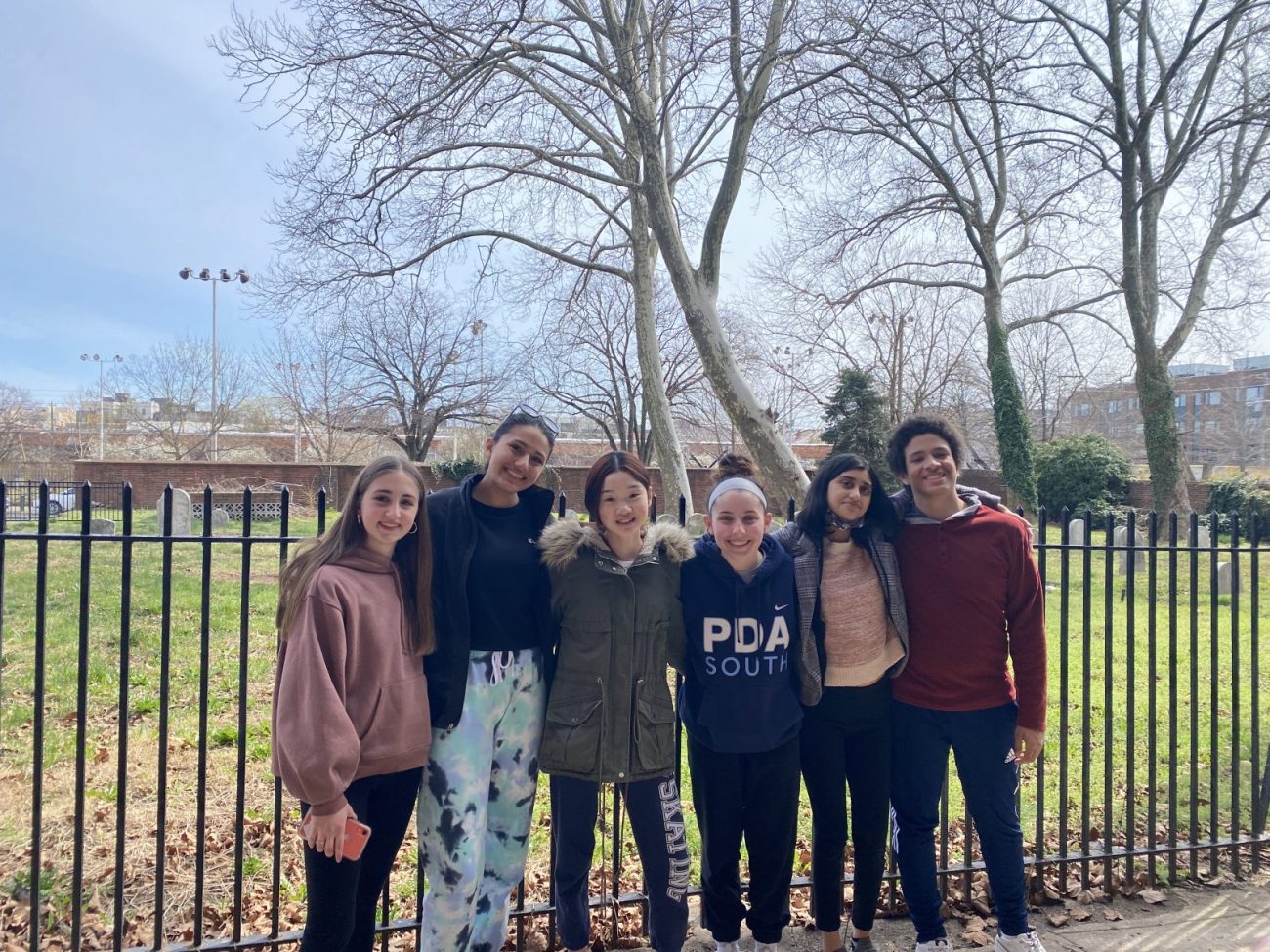Upper School Intensive Learning Spotlight: Art and Social Change
The Upper School Art & Social Change Intensive Learning group explored many forms of art as they connected various mediums to social justice events and topics, past and present. The week began with a film day focused on the HIV/AIDS epidemic. The movies And The Band Played On and Philadelphia gave students a base knowledge of the epidemic and then progressed to show them how films, like Philadelphia, have been used to change the perspective of viewers to help put an end to discrimination.
In the days following, the group visited Philadelphia murals to learn about the impact they have on communities by creating new opportunities and inspiring change. Students experienced workshops both in the classroom and at the Pig Iron Theatre Workshop that explored body language and skit improvisation. Each workshop focused on a theme, some of which included gender, emotion, and change of power, and exemplified the impact of change in physical movement and speech. Aaniella Desai ’22 noted, “My favorite day was Wednesday when Ms. Galler and Ms. MacKenzie ran a theater workshop that built upon our improv workshop with Pig Iron Theatre the day before. Improv is something outside of my comfort zone, so I wasn’t sure if I would enjoy it, but Ms. Galler and Ms. MacKenzie created a really comfortable environment to learn in. We all had a lot of fun getting to know each other in a way that’s very different from typical classroom learning.”
On their final day, the group visited the Philadelphia Museum of Art to see exhibits including Waiting for Tear Gas — “a 13-minute slide show that presents a complex negotiation of politics, portraiture, and, most importantly, protest within a broader context of artistic representations of dissent and social justice.”
This is one in a series of 2022 Intensive Learning Spotlights. For one week each March, regular classes are suspended for “Intensive Learning,” when Middle and Upper School students and teachers engage in an in-depth study of a specific subject, often involving off-campus research. This long-standing MFS tradition — which dates back to the mid 1970s — allows teachers and students to break out of the structure of formal class periods and traditional study for a time of experiential learning. Both students and teachers are encouraged to view themselves as life-long learners and students of the world around them.

